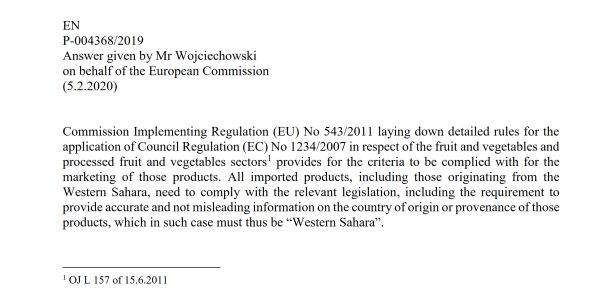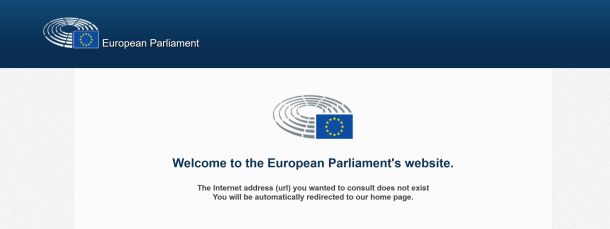
The new Dutch government has reiterated the position of their predecessors: Products from Western Sahara cannot enter the EU market labelled as from Morocco.
Yesterday, in the Dutch Parliament during question time, the Dutch Minister for Foreign Affairs, Frans Timmermans said that “according to European regulations, products from Western Sahara cannot enter the European markets as if they were from Morocco”. This is in line with the position of the previous Dutch government, which stated in August 2012 that Morocco could not claim tariff preferences for agricultural products coming from Western Sahara on the basis of the upcoming EU-Morocco agricultural agreement.
In reply to a question from socialist parliamentarian Roemer (SP), the Minister added that he would take a more active stance on the matter in the Council of EU Ministers. The Netherlands, is then the second country, as far as Western Sahara Resource Watch knows, to raise the matter in the Council.
Dutch supermarket chain Albert Heijn is known to import cherry tomatoes from Dakhla, located in the south of occupied Western Sahara. The tomatoes are sold under Albert Heijn's store brand 'AH' and labelled as originating from 'Morocco'.
Last month, the Swedish Minister for Trade Ewa Björling stated that they had brought up the same issue in the Council. Sweden had made it clear that they share the Dutch interpretation of the EU’s trade agreement with Morocco. Since no EU Member State recognises Morocco’ sovereignty over Western Sahara, products made in the territory cannot be given trade preference under the EU-Morocco trade agreements, she said.
The EU-Morocco trade agreement, allowing for a significant increase in the EU’s imports of fruit and vegetables from Morocco, entered into force in October 2012. The deal has come under fire for failing to exclude the territory of Western Sahara, thereby condoning produce from the occupied territory to enter the EU stamped as being from "Morocco".
EU Commission backtracks on labelling Western Sahara goods
What is EU's position on labelling of products from occupied Western Sahara? The EU Commission has now for the third time published a response to a parliamentary question on the matter, but the latest version fails to address the question.
Why does this EU statement keep disappearing?
A clarification by the EU Commission on labelling of products from Western Sahara was published, then removed, then published again and has now been removed again from EU websites.
EU reaffirms: Western Sahara products to be labelled as such
Two weeks ago, the EU Commission announced that products from Western Sahara should be labelled accordingly, only to withdraw that statement the very next day. Today, the Commission reaffirms its original position.
Spectacular backtracking by EU Commission on Western Sahara labelling
On 5 February 2020, the EU Commission announced that products from Western Sahara should be labelled accordingly. But about 24 hours later, all traces to that statement had been removed from EU websites.



